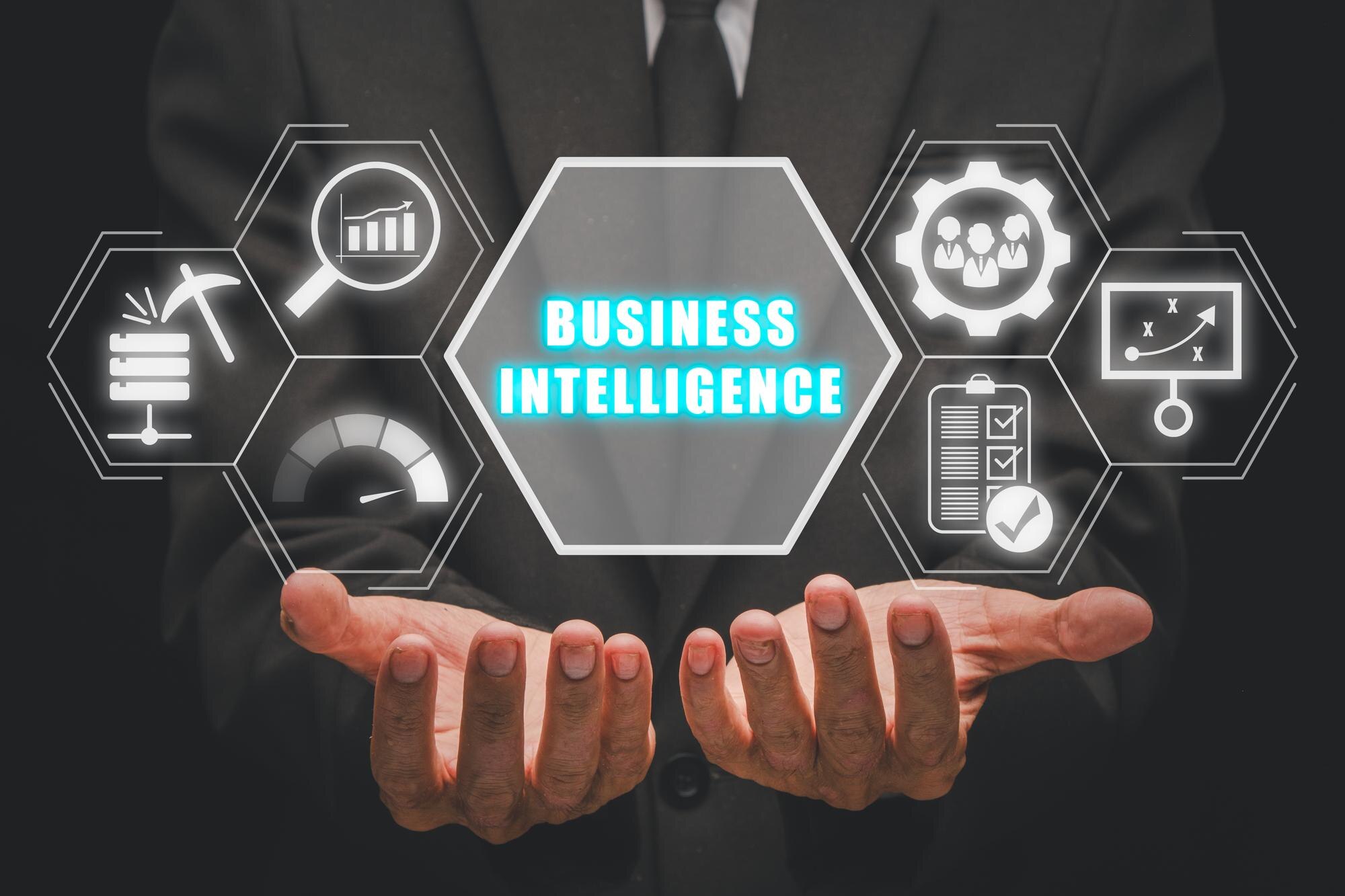
Estimated reading time: 8 minutes
Key Takeaways
- AI solutions for business enable organisations to enhance operational efficiency, improve decision-making, and deliver outstanding customer experiences through intelligent automation and data-driven insight.
- Adoption is accelerating across finance, retail, healthcare, and manufacturing, as companies analyse vast data, automate complex tasks, and gain competitive advantages.
- These solutions combine machine learning, natural language processing, and robotics to automate processes and support intelligent decision-making.
- Machine learning offers a competitive edge through continuous adaptation as markets and behaviours change.
- Predictive analytics uses historical data and statistical algorithms to forecast outcomes so businesses can anticipate rather than react.
- Enterprise AI platforms integrate with ERP, CRM, and supply chain systems to create a unified intelligence layer across the organisation.
- Integration, scalability, and ethics are critical to achieving sustainable, long-term value.
Table of contents
Introduction
AI solutions for business are redefining how modern corporations operate, creating fresh opportunities for growth and innovation. These technologies enable organisations to enhance operational efficiency, improve decision-making processes, and deliver outstanding customer experiences through intelligent automation and data-driven insight.
Adoption is accelerating across finance, retail, healthcare, and manufacturing. Forward-thinking companies use AI to analyse vast quantities of data, automate complex tasks, and gain competitive advantages in digital marketplaces.
As 2023 progresses, AI systems are no longer exotic tools reserved for tech giants or specialised industries, they have become essential resources for firms of all sizes that must thrive in data-rich environments. From predictive analytics to customer service automation, AI applications help organisations work smarter, faster, and with greater precision than ever before.
“AI applications help organisations work smarter, faster, and with greater precision than ever before.”
Understanding AI Solutions for Business
AI solutions for business combine machine learning, natural language processing, and robotics to automate processes and support intelligent decision-making across organisations. These technologies interpret complex data patterns, execute tasks with minimal human intervention, and improve performance through experience.
At their core, they streamline workflows in functions such as IT support, human resources, sales, and marketing. By handling repetitive tasks, AI frees staff to focus on strategic initiatives that require creativity, emotional intelligence, and complex problem-solving.
Beyond efficiency gains, properly implemented AI creates a virtuous cycle where bottlenecks are identified and removed, allowing firms to scale operations without proportionally increasing costs. Employees gain the chance to develop higher-value skills, contributing more meaningfully to organisational objectives.
As AI grows more sophisticated and accessible, it serves as a force multiplier, enabling businesses to achieve more with existing resources while improving accuracy and consistency. Tangible improvements in productivity, cost management, and service delivery directly affect the bottom line.
Key AI Technologies and Applications
Machine Learning for Business
Machine learning enables systems to learn from data, identify patterns, and make decisions with minimal human input. Unlike traditional software that follows set instructions, these algorithms improve over time as they process more information.
Companies use machine learning to extract actionable insight from datasets too large for human analysts. Systems detect subtle correlations, predict outcomes, and optimise processes, turning raw data into strategic assets. From detecting fraud in financial transactions to refining manufacturing workflows, machine learning supports smarter, evidence-based decisions.
Its competitive edge lies in continuous adaptation. As markets shift and customer behaviour changes, models recalibrate to maintain accuracy, ensuring businesses remain responsive to emerging trends.
Predictive Analytics
Predictive analytics uses historical data and statistical algorithms to forecast future outcomes, enabling businesses to anticipate change rather than react. This approach reshapes how organisations plan, allocate resources, and manage risk.
By applying advanced insight to business data, predictive analytics uncovers market opportunities, anticipates customer needs, and optimises inventory. Retailers forecast demand fluctuations to balance stock, while financial firms refine lending decisions and healthcare providers anticipate patient admissions.
The technique’s broad applicability means nearly every function where future trends influence current choices can benefit.
Enterprise AI Software
Enterprise AI software delivers comprehensive platforms designed for complex organisational needs. These systems integrate various AI capabilities into cohesive solutions working across departments.
Unlike standalone tools that solve isolated problems, enterprise platforms connect with ERP, CRM, and supply-chain systems, creating a unified intelligence layer that informs operations at every level.
Typical features include robust data management, pre-built models for common challenges, and development tools for bespoke applications. A centralised approach prevents fragmentation and inefficiency that can arise from multiple disconnected solutions.
AI in Critical Business Functions
AI in Decision Making
AI-supported decision making marks a fundamental shift in strategic choices. By analysing vast volumes of structured and unstructured data, AI provides executives with insights beyond human capability. Systems identify patterns, run simulations, and generate evidence-based recommendations that cut uncertainty.
AI reduces cognitive bias, offering objective analysis for high-stakes decisions about market entry, product development, or resource allocation. Real-time processing allows rapid response to emerging opportunities or threats, preserving competitive edge in volatile markets.
AI-Powered Customer Experience
AI tools are reshaping customer engagement, creating personalised, responsive interactions across all touchpoints. Chatbots and virtual assistants provide round-the-clock support, handling routine queries while escalating complex issues to human agents.
Beyond service desks, recommendation engines analyse individual preferences to suggest relevant products and content. Personalisation at scale boosts satisfaction, loyalty, and conversion rates as interactions grow more relevant and friction points are removed from the customer process.
AI for Talent Acquisition
AI is changing how businesses find and hire talent. Machine learning automates CV screening, highlights promising candidates, and predicts applicant success based on skill profiles and performance patterns.
These systems reduce hiring bias by focusing on objective criteria and accelerate recruitment by automating tasks such as interview scheduling and candidate communication. HR teams gain insight into talent market trends, salary benchmarks, and emerging skill requirements, supporting strategic workforce planning.
AI in Marketing
AI reshapes marketing by analysing data to identify micro-segments, predict consumer behaviour, and personalise messages with high precision.
Content development benefits from tools that generate headlines, suggest topics based on search trends, and predict which material will resonate with each audience. Advanced analytics track campaign performance across channels, automatically adjusting parameters to maximise return on spend.
Social media efforts gain from sentiment analysis, trend identification, and optimal posting-time insights. Marketing operations become more efficient, delivering stronger results while reducing waste.
AI for Supply Chain
AI advances supply-chain management through predictive analytics and automation. Systems set inventory levels by analysing sales history, seasonal patterns, and external factors such as weather to forecast demand accurately.
Real-time monitoring and predictive maintenance anticipate equipment failures, preventing disruption. Route-optimisation algorithms cut delivery times and transportation costs by calculating efficient paths and adapting to change.
During disruption, AI models alternative sourcing scenarios, assess production impacts, and recommend mitigation strategies that minimise interruption, increasing resilience amid global volatility.
Integration and Scalability
AI Platform Integration
Successful integration aligns AI with existing infrastructure. Organisations must ensure data quality and governance so AI receives reliable input and produces trustworthy output.
Effective strategies create interoperable systems that communicate across the technology stack. This may involve APIs linking AI tools to legacy applications, data pipelines that sustain information flow, and interfaces that make AI capabilities accessible to users across the organisation.
Selecting enterprise platforms with strong integration features—such as pre-built connectors and flexible architecture—creates an interconnected ecosystem where AI enhances operations rather than acting as an isolated point solution.
AI Scalability
Scalability determines whether AI can grow with the business without performance loss or prohibitive cost. As data volumes rise and requirements evolve, systems must handle increased load while maintaining accuracy and speed.
Cloud-native architectures support elastic resource allocation, enabling rapid expansion when demand spikes and cost savings during quieter periods. Modular design lets organisations add new models or features without rebuilding the entire platform, ensuring continuous evolution.
Monitoring tools track model drift, data quality, and system health, alerting teams to issues before they affect performance. Governance frameworks establish clear responsibilities for updating models, securing data, and managing compliance as the AI estate expands.
Ethical and Regulatory Considerations
Widespread AI use raises ethical and compliance questions. Organisations must address bias, transparency, and accountability. Regular audits, diverse training data, and explainable models help maintain fairness.
Regulations such as the EU’s proposed AI Act demand documentation of system purpose, data sources, and risk mitigation. Proactive compliance reduces legal exposure and builds public trust.
Conclusion
AI solutions have moved from experimental projects to essential assets that drive efficiency and growth. By adopting machine learning, predictive analytics, and integrated enterprise platforms, organisations can automate routine work, gain actionable insight, and deliver superior customer experiences.
Integration, scalability, and ethics remain critical. Companies that align AI with existing infrastructure, plan for expansion, and uphold responsible practices will secure lasting advantages in an increasingly data-driven economy.
FAQs
What are AI solutions for business?
AI solutions for business combine machine learning, natural language processing, and robotics to automate processes and support intelligent decision-making across organisations.
How do AI solutions enhance decision-making?
By analysing vast volumes of structured and unstructured data, AI provides insights beyond human capability, identifies patterns, runs simulations, and generates evidence-based recommendations that reduce uncertainty.
What role does machine learning play in business?
Machine learning enables systems to learn from data, identify patterns, and make decisions with minimal human input while improving over time as they process more information.
How does predictive analytics help organisations?
Predictive analytics uses historical data and statistical algorithms to forecast future outcomes, allowing businesses to anticipate change, improve planning, and manage risk.
What is enterprise AI software?
Enterprise AI software delivers comprehensive platforms that integrate various AI capabilities into cohesive solutions and connect with ERP, CRM, and supply-chain systems to create a unified intelligence layer.
Why are integration and scalability essential for AI success?
Successful integration ensures reliable inputs and interoperable systems, while scalability enables AI to handle increased load, maintain accuracy and speed, and evolve through modular design and cloud-native architectures.
What ethical and regulatory factors should businesses consider?
Organisations must address bias, transparency, and accountability with audits, diverse data, and explainable models, and meet regulations such as the EU’s proposed AI Act with documentation and risk mitigation.






